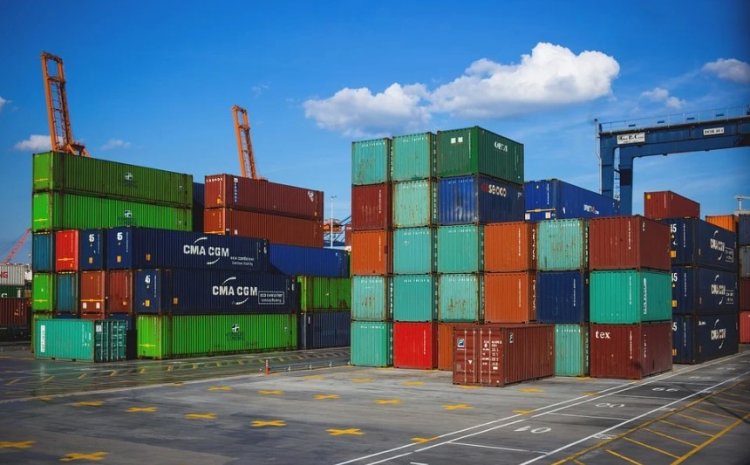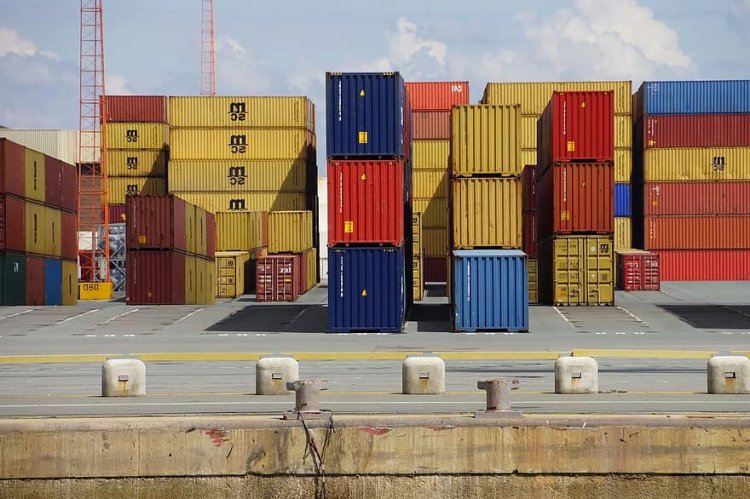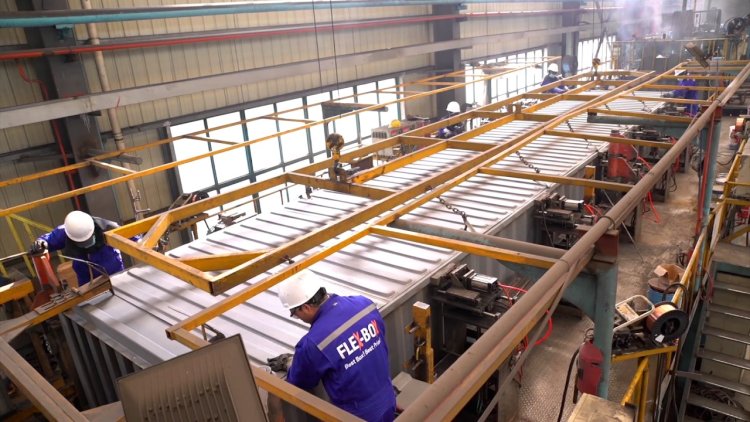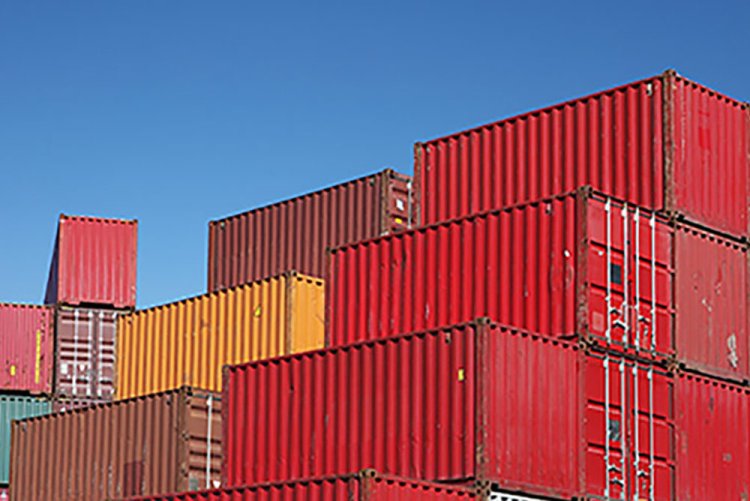For these reasons.. the decline in global container production
The decline marks a sharp reversal from the past two years, when container manufacturing boomed in response to pandemic-spurred demand for physical goods, leading to a shortage of rectangular boxes.

Global production of shipping containers has plummeted as demand for the goods plummets after the easing of pandemic restrictions, leaving corrugated steel boxes piling up at major ports.
The numbers show that production of 20-foot equivalent units, the industry standard size for a container, fell 71 percent from 1.06 million to 306,000 between the first quarter of 2022 and the same period this year.
Sharp decline
The decline marks a sharp reversal from the past two years, when container manufacturing boomed in response to pandemic-spurred demand for physical goods, leading to a shortage of rectangular boxes.

shipping industry
However, demand for exports has waned since restrictions eased and economies opened up, leaving the shipping industry with the opposite problem as a surplus of containers threatens to flood ports in China, where up to 95 per cent of the world's boxes are produced.
Dry container production ceased
AP Moller - Maersk, one of the world's largest shipping conglomerates, has said it will stop production of dry containers until at least 2024.
And that's even though it said it may resume building 20-foot boxes sooner than its larger 40-foot versions as demand for the former appears to have been more flexible.
The company is also looking to sell or get rid of more old boxes to take advantage of the glut, said Anne-Sophie Zerlang-Carlsen, head of customer delivery for Asia Pacific at Maersk.

The largest fund producers in the country
The decline in demand hit manufacturers hard. Profits of China International Marine Containers, one of the country's largest producers of boxes, fell 91 percent year-on-year to 160 million renminbi ($23 million) in the first three months of this year.
The Shenzhen-headquartered company said sales of standard containers fell 77 percent during the period, blaming "continued declines in container trade and insufficient demand for new containers."
Cosco Freight Development, the container manufacturing arm of state-owned shipping group Cosco, saw profits drop 71 percent in the first quarter of this year to RMB398 million.
Profits decline
Economists at the World Trade Organization believe that export growth will falter this year, which indicates that demand for containers will remain weak. The World Trade Organization's latest forecast, released last month, estimates trade in goods will increase by just 1.7 percent this year - down from 2.7 percent growth in 2022.
Dealing with lower profits
Container shipping lines are already having to deal with a sharp drop in profits after a record period for profits during the Covid-19 lockdowns, when supply chain disruptions - along with a boom in demand for goods - drove up the cost of freight.
The boom has left shipping groups scrambling to stock up on new containers after pandemic-induced bottlenecks at many ports left existing boxes short to ship goods from Asia.
7.1 million containers
In 2021, global production reached 7.1 million standard-sized containers, more than double the production in 2020, according to Drewry.
Now demand has fallen so low that port owners in the region are faced with a new problem of having to find space for standard volumes of unused boxes.

Huge amounts
Stocks are now at record levels across the Asia-Pacific region, Carlsen said, adding that "huge amounts" of containers are expected to continue piling up at the region's ports throughout this year.
The availability of boxes in Shanghai, the world's largest container port, was higher this year than during the spring shutdown of 2022, according to analysis firm Container xChange.
However, Michael Fitzgerald, deputy chief financial officer at Hong Kong-listed shipping group Orient Overseas Container Line, said earlier this month that the glut at Chinese ports had eased "over the past few weeks."


 Shrouq
Shrouq 












